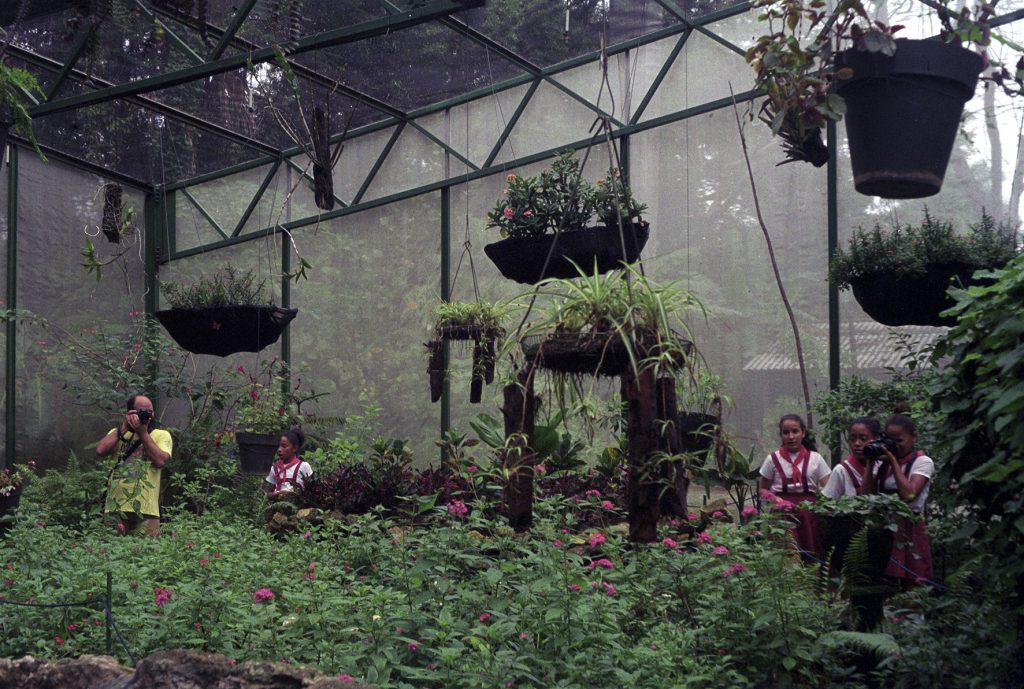
At this time of crisis, it is important to acknowledge the gendered nuances of the impact of climate change, and how women are playing leading roles in affirmative climate action. This symposium brings together a range of women producing work that is challenging the stereotypes of the visual representation of climate change.
The event is hosted jointly by The Photography and the Archive Research Centre at the London College of Communication, University of the Arts London, Climate Visuals and the VII Photo Agency. It will include presentations from Nichole Sobecki from the VII Photo Agency, Eva Sajovic and Corinne Silva from Picturing Climate and Maria Teresa Salvati from Slideluck Editorial.
The Climate Visual’s evidence demonstrates that within the criteria for effective climate change visualization there is the need to have images that are emotionally powerful, and mostly representing real people, showing real emotions. Now more than ever we need to be aware of how much we are connected; not only in passively enduring the consequences of climate change and its catastrophic effects but also in the tangible possibility and hope that if we act the other way around, we can impact positively in reversing the trend. The story is making us see how vulnerable we all are.
The effects of the unjust planet we have created are forcing a further reflection on accepting the idea that we are so intrinsically connected with everything, and that we are inextricably part of nature, and in this, we are therefore part of the global problem, as well as the potential solution. As a consequence, it seems important to create empathy with the viewers.
In what ways can creative and personal interpretations of the connections between the self, to others, to animals, to the world around us, the Earth, be inspiring and thought-provoking from a visual storytelling perspective? Is this new perspective of visualizing climate change opening to a softer, kinder, more empathetic gaze, moving from the stereotypes of landscape and environmental photography mostly depicted by men?
Schedule
14.00 GMT / 15.00 BST / 16.00 CET / 10.00 EDT – Start
16.00 – 16.15 CET
Introduction by Maria Teresa Salvati and Brigitte Lardionis PARC
16.15-16.45 CET
Nichole Sobecki, VII Photo Agency
This is the story of the mother who didn’t flee civil war but fled the drought. The fisherman pushed into piracy by empty nets in a depleted, lawless sea. The young farmer who felt the pull of the militant group Al Shabab when his crops failed for multiple seasons.
 A woman walks through a cactus field in a drought-stricken area of western Somaliland, a semi-autonomous region in the north of Somalia, on April 6, 2016.
A woman walks through a cactus field in a drought-stricken area of western Somaliland, a semi-autonomous region in the north of Somalia, on April 6, 2016.
Photo credit: Nichole Sobecki / VII
Climate change and environmental degradation are transforming Somalia, pushing people to desperate choices and violence. Somalis live and die depending on the amount of rain that falls each year. For generations, they have survived extreme conditions, relying on their traditions and community. A quarter-century of civil war tested those ties and challenged their resiliency. But rain falls less now, and the temperatures are rising.
“With this weather pattern, Somalia or Somalis will not survive,” said Fatima Jibrell, an environmental activist. “Maybe the land, a piece of desert called ‘Somalia,’ will exist on the map of the world, but Somalis cannot survive.”
Through photography, rare archival imagery and a documentary short, “A Climate for Conflict” explores the environmental roots of conflict in Somalia, and the ways its woes spill beyond its place on the map.
16.45-17.15 CET
Maria Teresa Salvati, Slideluck Editorial
Maria Teresa Salvati, director of Slideluck Editorial will present the third biennial global call launched by the platform, on the theme: Everything is Connected. The call is a reflection on how the events associated with climate change are inextricably connected with the way we live, eat, vote, consume, and act, but also with the unjust world we live in. The aim is to reflect on content, aesthetics and dissemination, exploring the social role contemporary and documentary photography can have.
One of the key questions at the moment is: in what ways can photography help to convey powerful messages and draw new perimeters of visions that can help us think, and use its most creative and comprehensive expression as a way to contribute to telling the stories of our times, create empathy, promote positive actions, and define new meanings of “connection”. So, why is climate change still a topic dominated mostly by the male gaze?
Info about the call is available here.
17.15-17.45 CET
Picturing Climate – Eva Sajovic and Corinne Silva
Picturing Climate brings together artists, researchers and grassroots arts organizations to explore the potential of participatory photography and video, narrative storytelling, and theatre as a means to share knowledges and experiences about the current effects of climate change. The first phase (November 2019 – November 2020) took place across Cuba, Bosnia and Herzegovina, Jordan, and the UK, culminating in a public program at Tate Modern’s Tate Exchange.
17.45-18.15 CET
Closing Panel Discussion with all the presenters moderated by Brigitte Lardinois PARC



